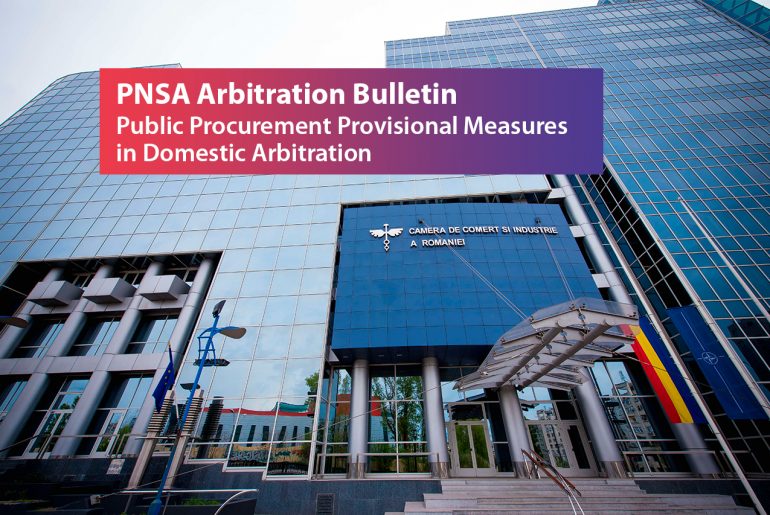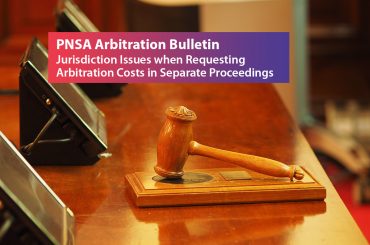Since their introduction in the 2018 Rules of Arbitration of the Court of International Commercial Arbitration attached to the Romanian Chamber of Commerce and Industry (“CICA”, “CICA Rules”), the Emergency Arbitrator proceedings have been met with reluctance, to say the least, by Romanian courts.
In several judgments issued by the Bucharest Court of Appeal, judges have annulled decisions rendered by Emergency Arbitrators under the CICA Rules, citing irregularities in the constitution of the Arbitral Tribunal (one arbitrator versus three agreed by the parties in the arbitration clause) or lack of jurisdiction which is allegedly vested only with courts before the start of the arbitration (based on art. 585 par. (1) of the Civil Procedure Code).
In a recent case before the Bucharest Court of Appeal, an Emergency Arbitrator procedural order was yet again annulled, however this time around on different grounds (Decision no. 93/28.09.2023).
The case concerned a procedural order issued by an Emergency Arbitrator whereby the effects of a termination notice under a public procurement contract were stayed. The defendant in the Emergency Arbitrator proceedings raised the plea of inadmissibility, which was dismissed by the Emergency Arbitrator.
The defendant’s inadmissibility plea was based on art. 53 par. (21) of Law no. 101/2016[1]. In dismissing the plea, the Emergency Arbitrator argued that the claim is based on two complementary legal grounds for provisional measures, art. 40 of the CICA Rules[2] and art. 53 par. (2) of Law no. 101/2016[3], respectively. In the tribunal’s view, the provision raised by the defendant – art. 53 par. (21) regulates a different hypothesis, while the procedure provided under art. 53 par. (2) has a special character compared to the presidential ordinance.
The Bucharest Court of Appeal granted the request for annulment filed against the Emergency Arbitrator procedural order. In doing so, the court first ascertained that the claim for provisional measures was based, among others, on art. 53 par. (2) of Law no. 101/2016, which in the court’s view is applicable whether the case is tried before a court or an arbitral tribunal.
However, the court noted that art. 53 par. (2) of Law no. 101/2016 refers only to the stay of the contract performance, and cannot be applied in case of a termination notice. Moreover, with reference to art. 53 par. (21), the court noted that although having as object the presidential ordinance, one cannot ignore the fact that both procedures under art. 53 par. (2) of Law no. 101/2016 and art. 40 of the CICA Rules will apply the same conditions that are characteristic of the presidential ordinance, namely: justified case, preventing an imminent damage and not judging the merits of the case.
In the particular case of art. 40 of the CICA Rules, the court ruled that this provision cannot be applied independently from the provisions of Law no. 101/2016. That is to say, parties to a public procurement contract will only have access to those provisional measures regulated under Law no. 101/2016, whether such measures are sought before national courts or arbitral tribunals; if a party does not have an action under Law no. 101/2016, the same action cannot be requested in the arbitral forum either.
For these reasons, the Court of Appeal decided that the Emergency Arbitrator had breached the imperative provisions of art. 53 par. (2) and par. (21) of Law no. 101/2016, and as a consequence annulled the Emergency Arbitrator decision, admitted the inadmissibility plea and dismissed the request for provisional measures as inadmissible. The Court of Appeal’s decision is not final.
Despite its take on the inadmissibility issue, the Court of Appeal’s decision does have its silver linings. One is that the Emergency Arbitrator decision was not annulled for lack of jurisdiction or unlawful constitution of the arbitral tribunal, so the court indirectly confirmed the Emergency Arbitrator’s jurisdiction to grant provisional measures before the arbitral tribunal for the merits of the case is constituted. Second, the confirmation that art. 53 par. (2) of Law no. 101/2016 is applicable also in arbitration, not just in cases before national courts.
As regards the decision on the inadmissibility plea, the court’s reasoning reveals the decisive role that the legal root of the claim plays in general, and especially in the sensitive matter of provisional measures decided by emergency arbitrators.
We will keep an eye out for the High Court of Cassation and Justice’s input on the above matter, if a final appeal is submitted in the case. Should there be any significant changes or nuances, we will put this post back “on the docket” in one of our next issues of the Arbitration Bulletin.
[1] Under Art. 53 par. (21) of Law no. 101/2016 (version in force at the time the emergency arbitrator proceedings were underway),
“The procedure of presidential ordinance is not admissible in the matters of staying the termination for fault, unilateral termination or anticipated termination of public procurement contracts.”
[2] Under Art. 40 of the CICA Rules,
“(1) The arbitral tribunal may, at the request of a party and by means of a procedural order rendered under an expedited regime, grant any interim or conservatory measures that it deems appropriate. (…)
(3) Requests for interim or conservatory measures filed before the initiation of the arbitration or before the case file was referred to the arbitral tribunal shall be decided by an emergency arbitrator, in accordance with the procedure set forth in Annex II.”
[3] Under Art. 53 par. (2) of Law no. 101/2016,
“In substantially justified cases and for the prevention of imminent damage, the court may order at the request of the interested party, until the merits of the case are settled, through a reasoned decision with the parties’ summoning, the stay of performance of the contract.”
| PNSA ARBITRATION PRACTICE GROUP | |
|---|---|
 |
 |
 |
|




